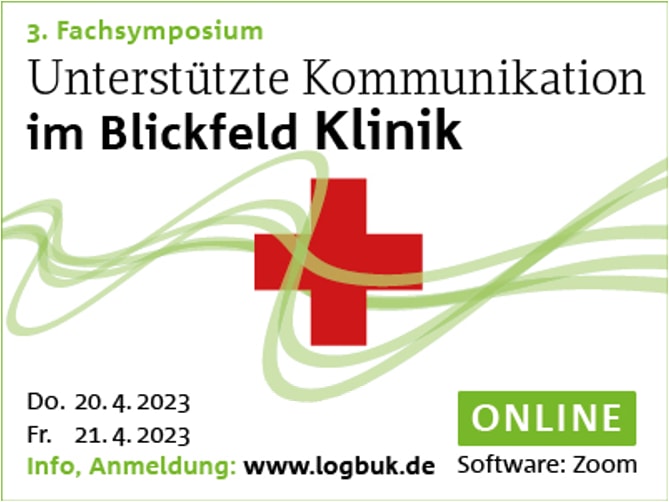03 Mar 2023 | Sabrina Beer
Augmentative and Alternative Communication in neurology, rehabilitation and clinic
Communication in neurological diseases
In facio oral tract therapy, I meet children and adults as a therapist. The health challenges are of different nature. From acquired before birth to late adulthood, everything is represented. Neurological diseases often play a decisive role: cerebral palsy, muscular dystrophies, genetic syndromes such as Down syndrome, epilepsy, strokes, head trauma, Parkinson's disease, motor neuron disease. The list is long.
In terms of communication, there are differences: some can speak, some have limited verbal intelligibility and still others have no access to their voice and thus verbal language. It is similar when it comes to understanding language - some understand everything, some may only understand keywords and some have an understanding of atmosphere or the melody or recurring activities. In addition, there are often motor challenges.
In the course of my professional career, I have discovered the focus on Augmentative and Alternative Communication (AAC). Or should I say the topic got hold of me 😊? Communication is a fundamental right and all professions that work with people communicate with them in some way. But how can communication be organized if there are difficulties in speaking or understanding language? This is where AAC comes into play.
For children and young people with disabilities, AAC is already (relatively) well established.
However, the situation is quite different in the field of clinics, neurology and rehabilitation. In German-speaking countries, it is only being recognized slowly what opportunities AAC offers for those affected, relatives and medical professionals.
3rd Symposium on Augmentative and Alternative Communication

The topic has not yet been implemented clearly in professional medical training e.g. in nursing and speech therapy or related professional groups. The specialist staff currently knows little about the possibilities and conditions.
In order to create awareness of this topic and to use synergies, the symposium 'Augmentative and Alternative Communication – clinical focus’ was launched in 2019. This symposium takes place every two years. The next date is April 20th and 21st 2023.
Among other things, the symposium will look at developments in the field of AAC in clinics, rehabilitation and neurology. Possibilities of helping individual patients to use AAC are shown. Challenges in implementing AAC are discussed. Furthermore, we highlight how successful communication affects the quality of health care and patient orientation.
The symposium will take place online and offers an interesting programme.
I am looking forward to a variety of presentations and lively discussions. Most of all I am looking forward to growing awareness for the importance of Augmentative and Alternative Communication.





